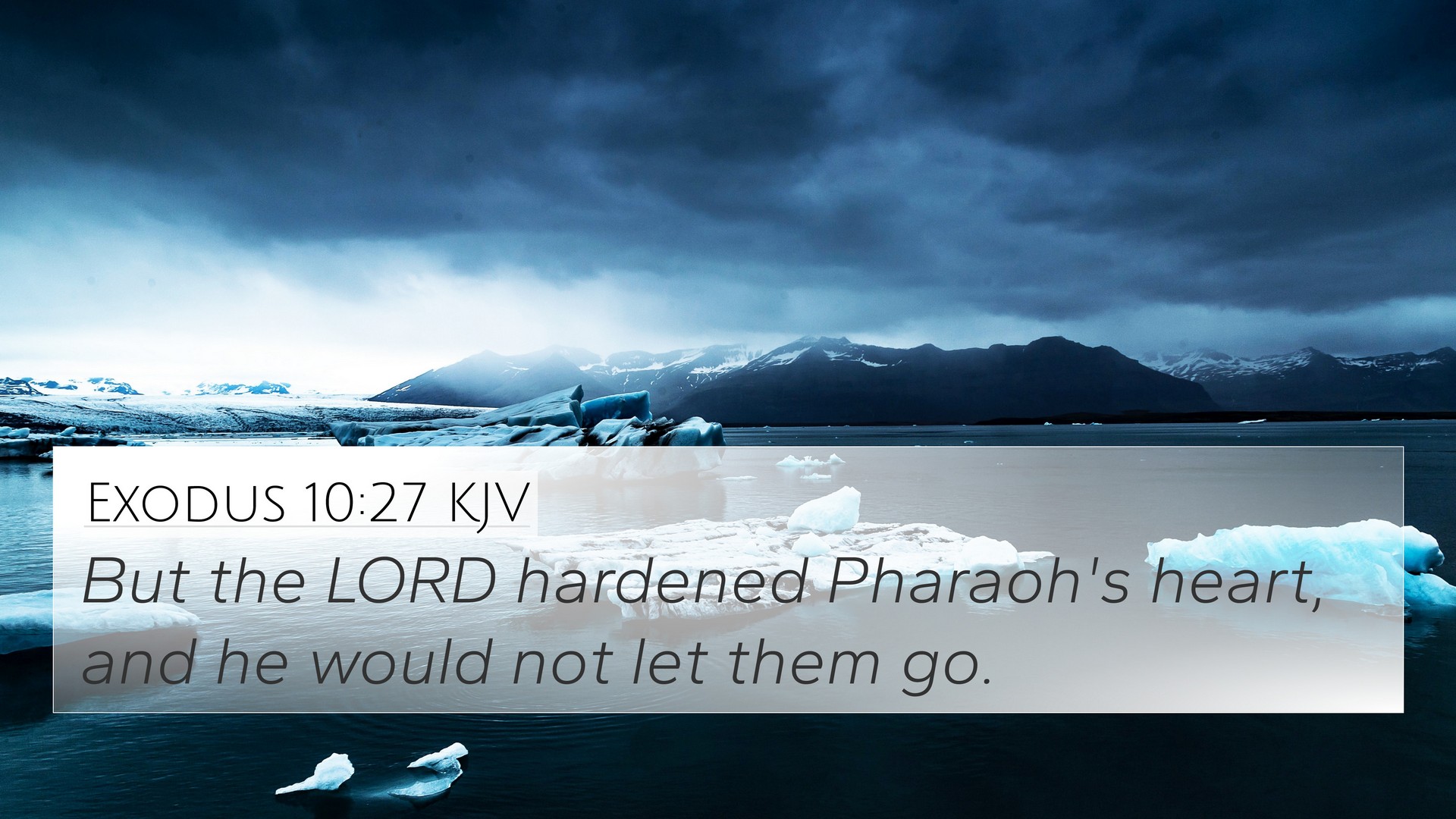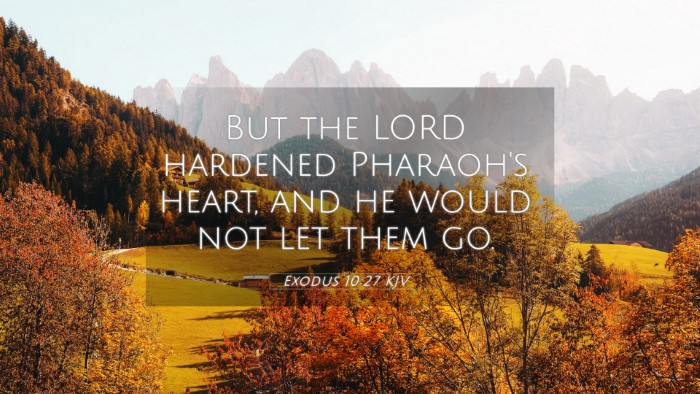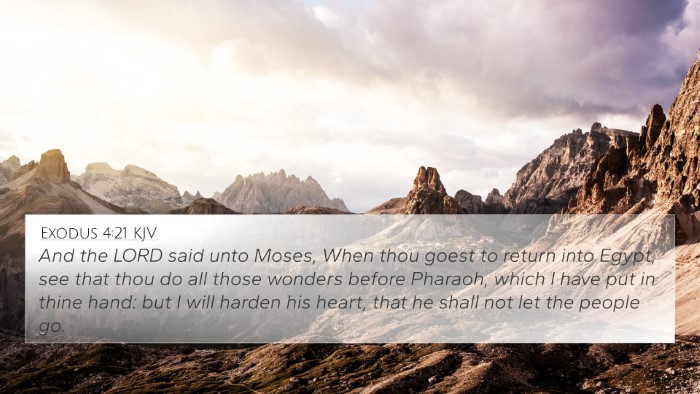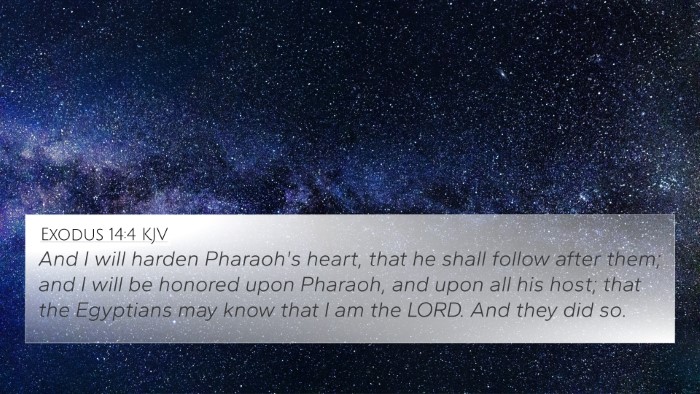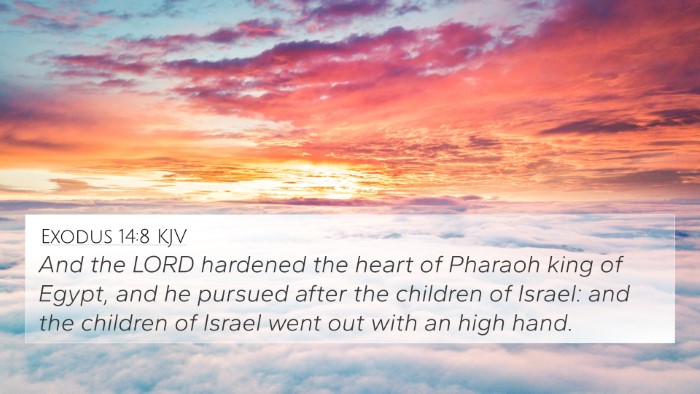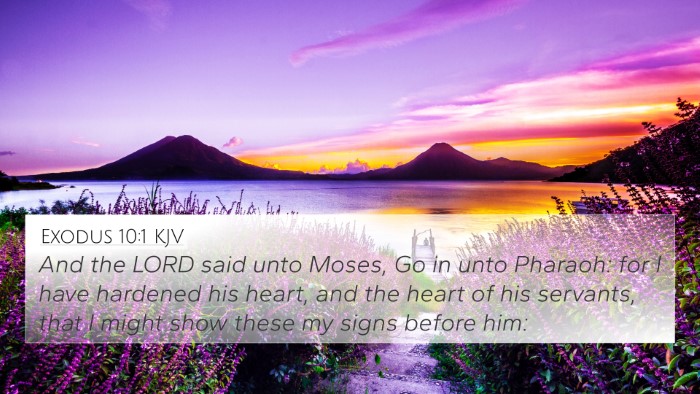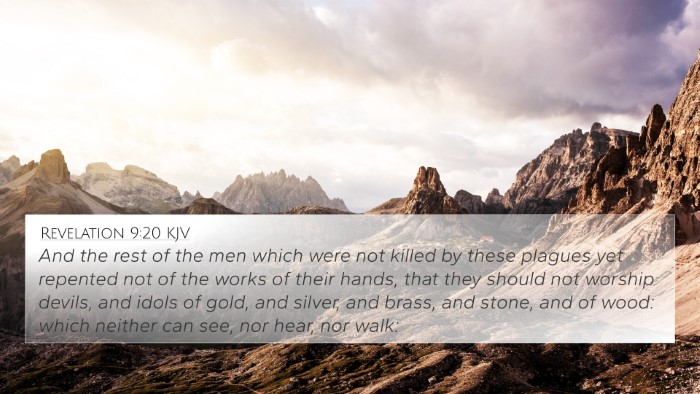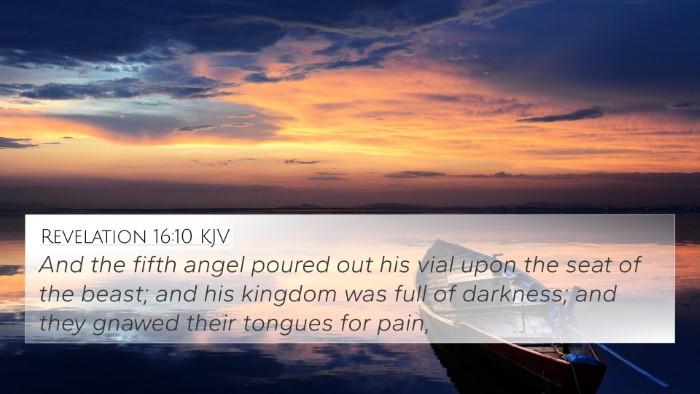Understanding Exodus 10:27
Exodus 10:27 states, "But the Lord hardened Pharaoh's heart, and he would not let them go." This pivotal moment in the narrative of the Exodus encapsulates God's sovereignty and the grievous state of Pharaoh's heart as he refuses to obey God's command despite the plagues.
Insights from Public Domain Commentaries
- Matthew Henry: Henry emphasizes that God's hardening of Pharaoh's heart signifies divine sovereignty over human will. Pharaoh's repeated rejection of God's command led to a state where he was further entrenched in his rebellion.
- Albert Barnes: Barnes highlights that the hardening of the heart serves a dual purpose: it was a demonstration of God's power and an avenue for greater judgment upon Egypt. The phrase indicates a culmination of Pharaoh's own unrighteousness, aligning divine action with human response.
- Adam Clarke: Clarke adds depth by noting that the hardening is both a natural consequence of Pharaoh's actions and a divine act. He reiterates that God does not force rebellion upon any man but allows the heart to be sealed in its decisions.
Thematic Connections
This verse serves as a crucial link in the narrative of Exodus, illustrating the theme of divine sovereignty and human responsibility. The struggle between God and Pharaoh illuminates broader themes present throughout Scripture about the nature of disobedience, judgment, and divine will.
Bible Verse Cross-References
- Romans 9:17: "For the Scripture says to Pharaoh: 'I raised you up for this very purpose, that I might display my power in you and that my name might be proclaimed in all the earth.'"
- Exodus 7:3: "But I will harden Pharaoh's heart, and though I multiply my miraculous signs and wonders in Egypt, "
- Exodus 8:15: "But when Pharaoh saw that there was relief, he hardened his heart and would not listen to Moses and Aaron, just as the Lord had said."
- 2 Thessalonians 2:11-12: "For this reason God sends them a powerful delusion so that they will believe the lie..."
- Proverbs 28:14: "Blessed is the one who always trembles before God, but whoever hardens their heart falls into trouble."
- Hebrews 3:8: "Do not harden your hearts as you did in the rebellion, during the time of testing in the wilderness."
- Galatians 6:7: "Do not be deceived: God cannot be mocked. A man reaps what he sows."
Comparative Bible Verse Analysis
The dynamics between Exodus 10:27 and various other scriptures reflect the complex relationship between God's sovereignty and human free will. The references provided illustrate a pattern evident in many aspects of biblical theology.
Connections Between Bible Verses
- Linkages between God's purpose and human action: Both Romans and Proverbs speak to the consequences of hardening one's heart against God.
- The narrative in Exodus exemplifies thematic parallels: The refusal to heed God’s word is a recurring struggle that spans both Testaments.
- The role of divine signs and wonders: The miracles of Exodus and their purpose are matched with New Testament discussions on faith and belief.
Additional Insights
The reflection on Exodus 10:27 through public domain commentaries reveals important aspects of divine justice and mercy within the biblical narrative. The interactions between God and Pharaoh serve as a stark warning and an emblem of God's purpose in the face of human rebellion.
Tools for Bible Cross-Referencing
Employing a Bible concordance or a cross-reference guide can enhance one’s understanding of Exodus 10:27 and its implications. These tools allow for deeper theological engagement and facilitate a comprehensive study of Biblical texts.
Conclusion
Understanding Exodus 10:27 offers a rich tapestry of theological insights and cross-references that can guide one in exploring the spectrum of divine-human interaction in the Scriptures. As one engages with this and connected verses, the overarching narrative of God's sovereignty amidst human opposition becomes profoundly clear.
